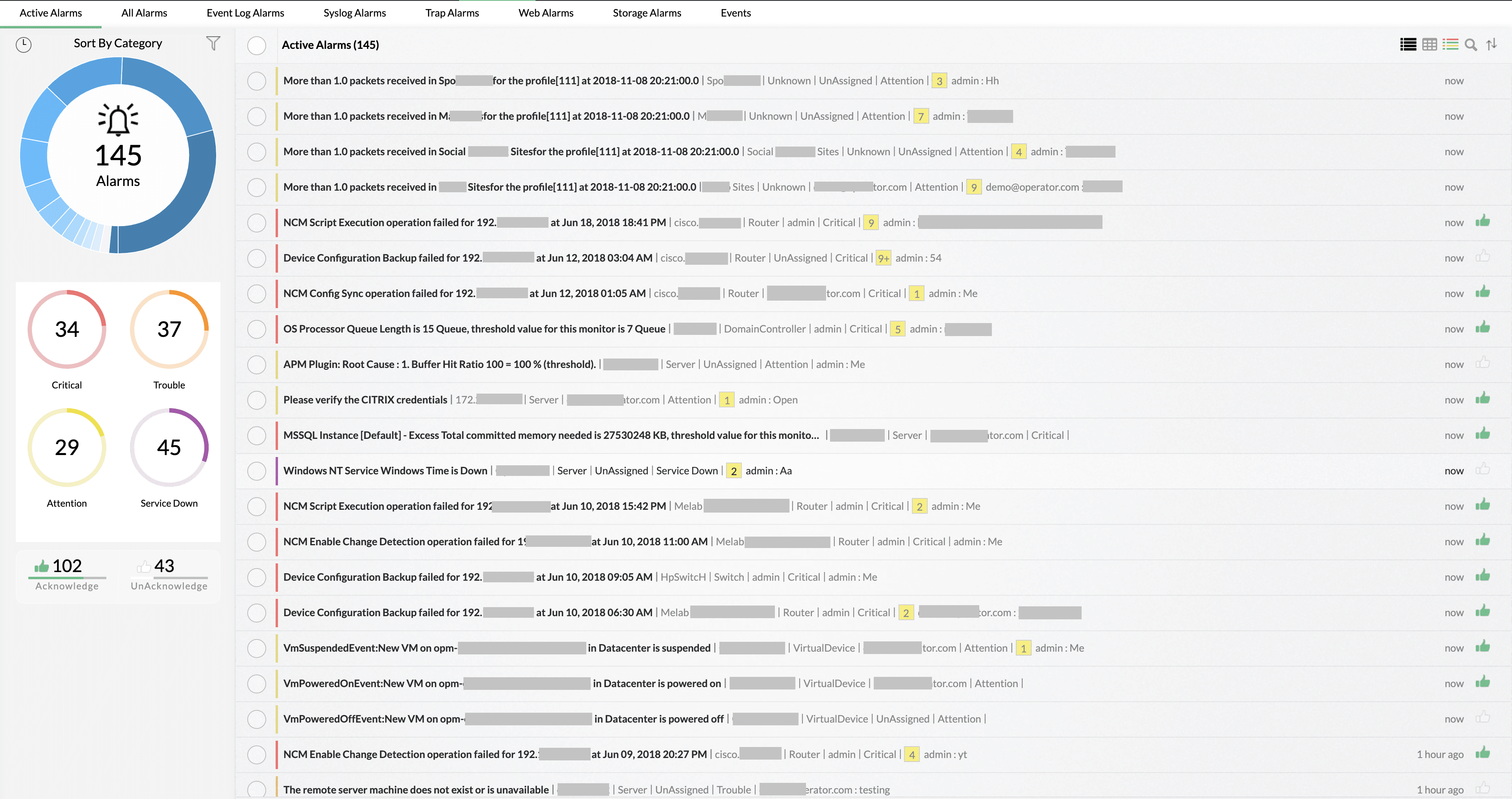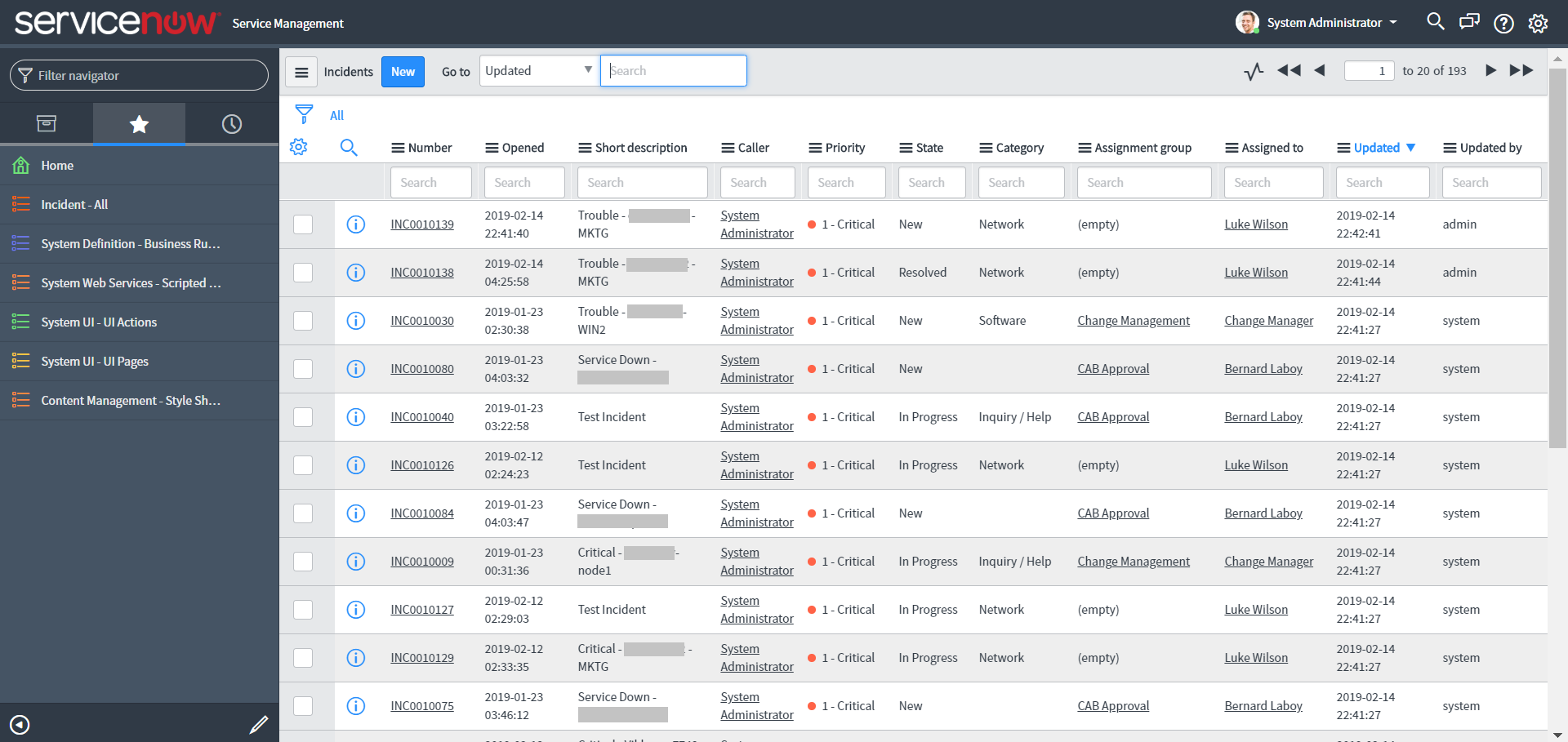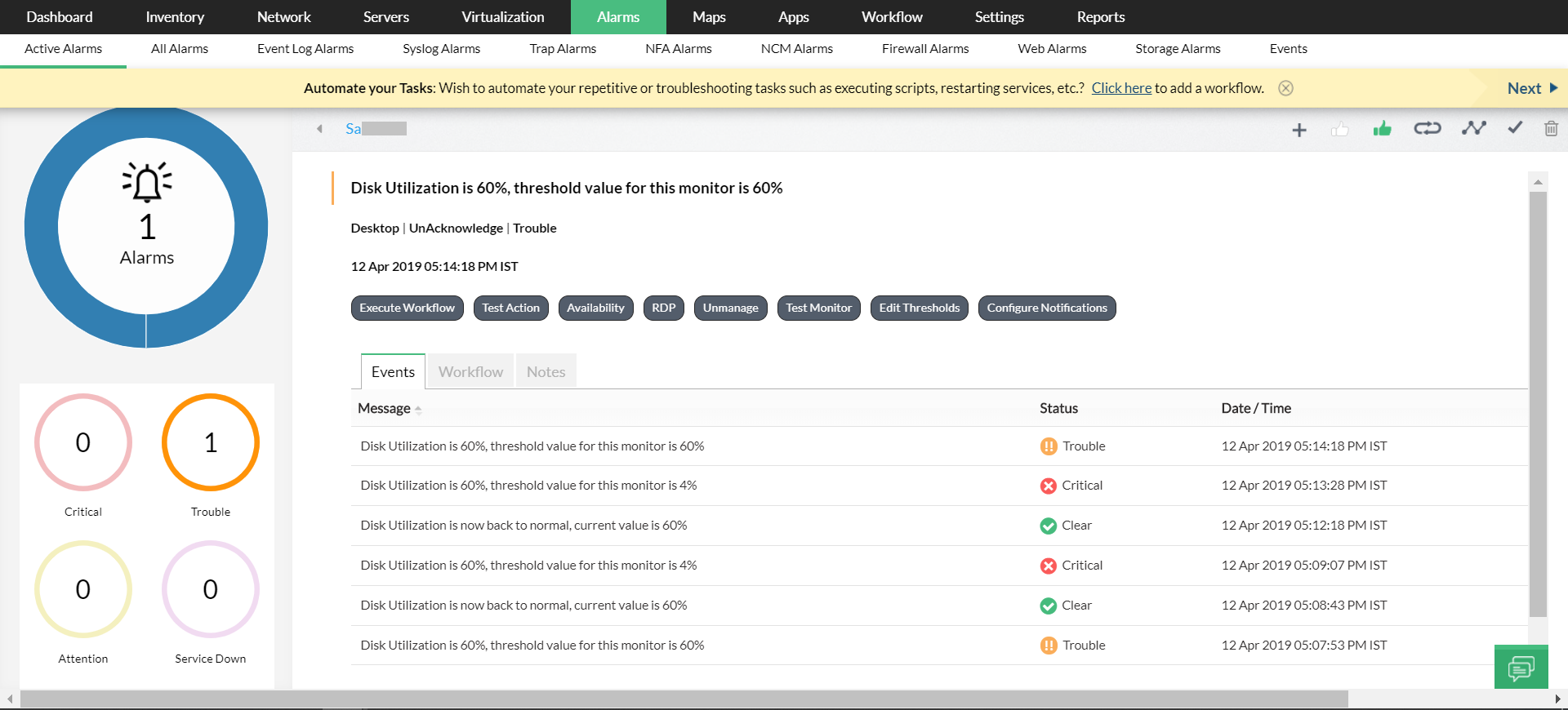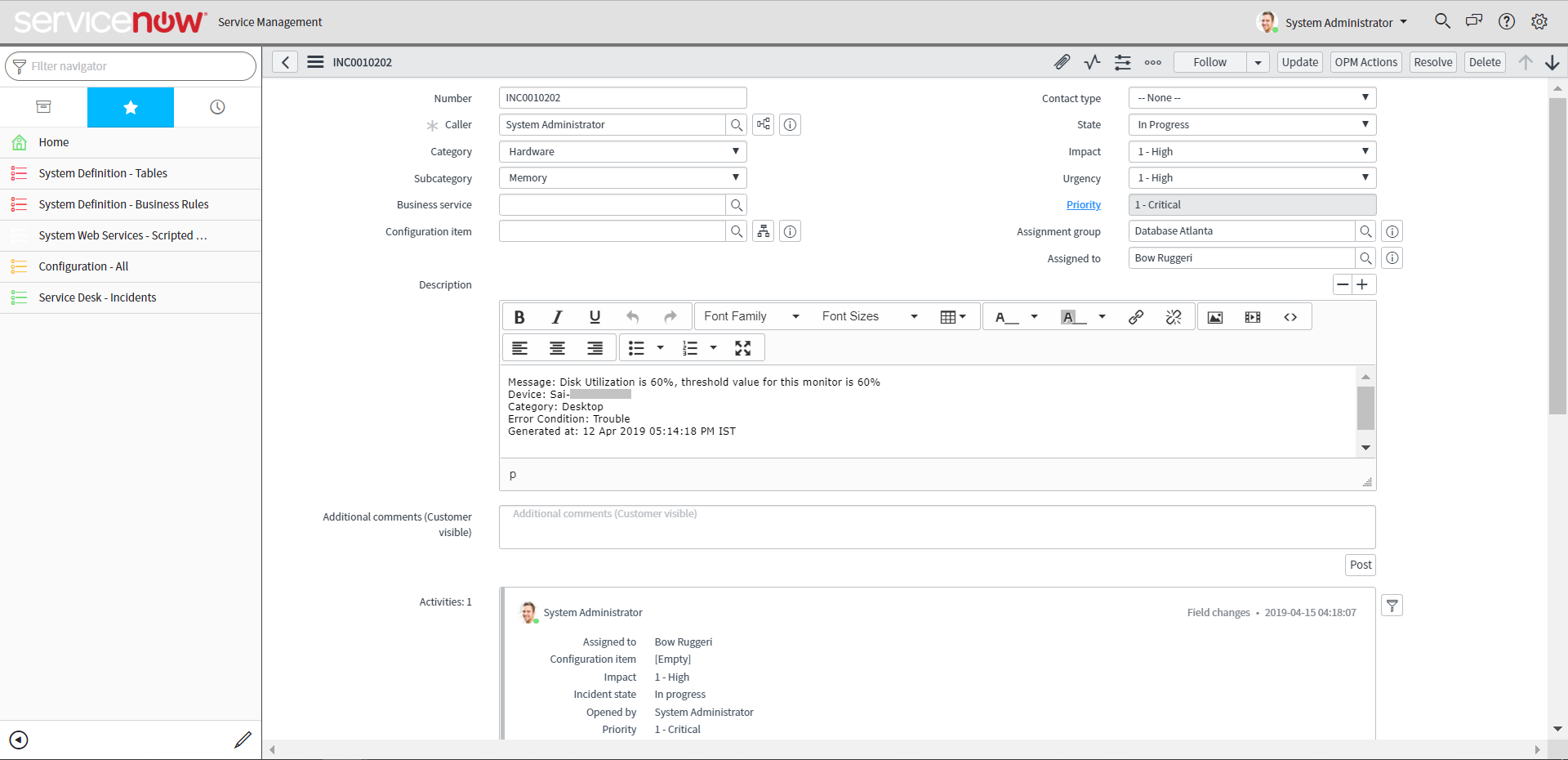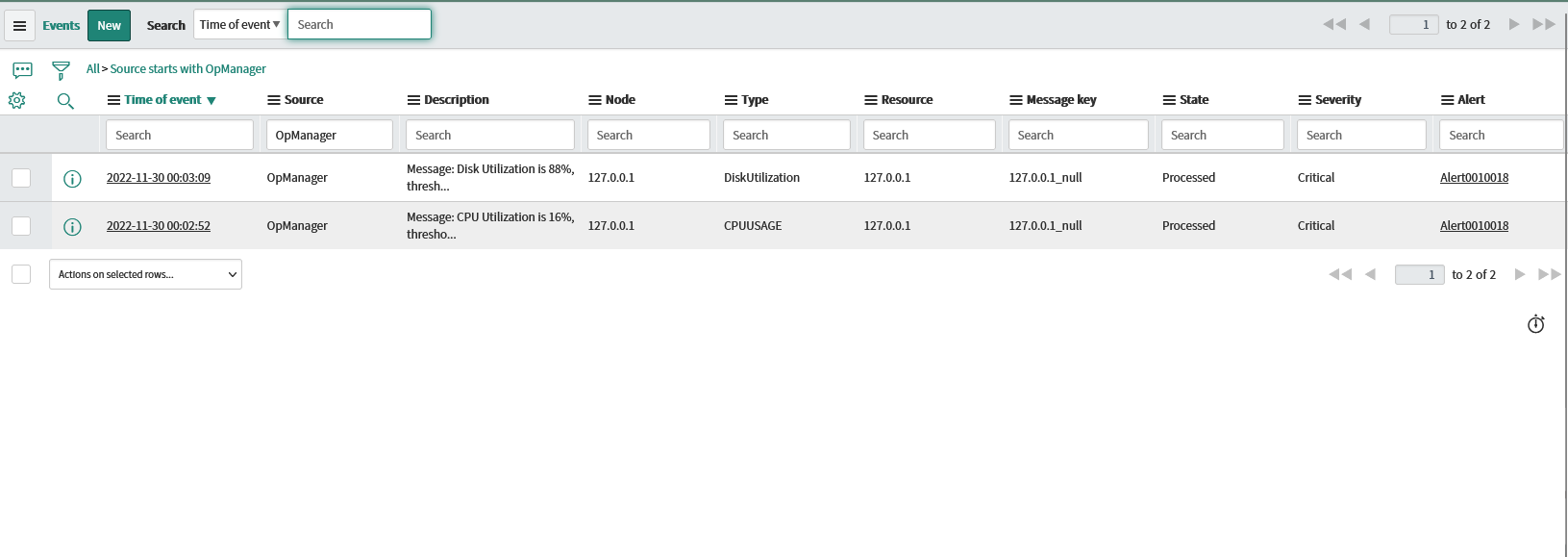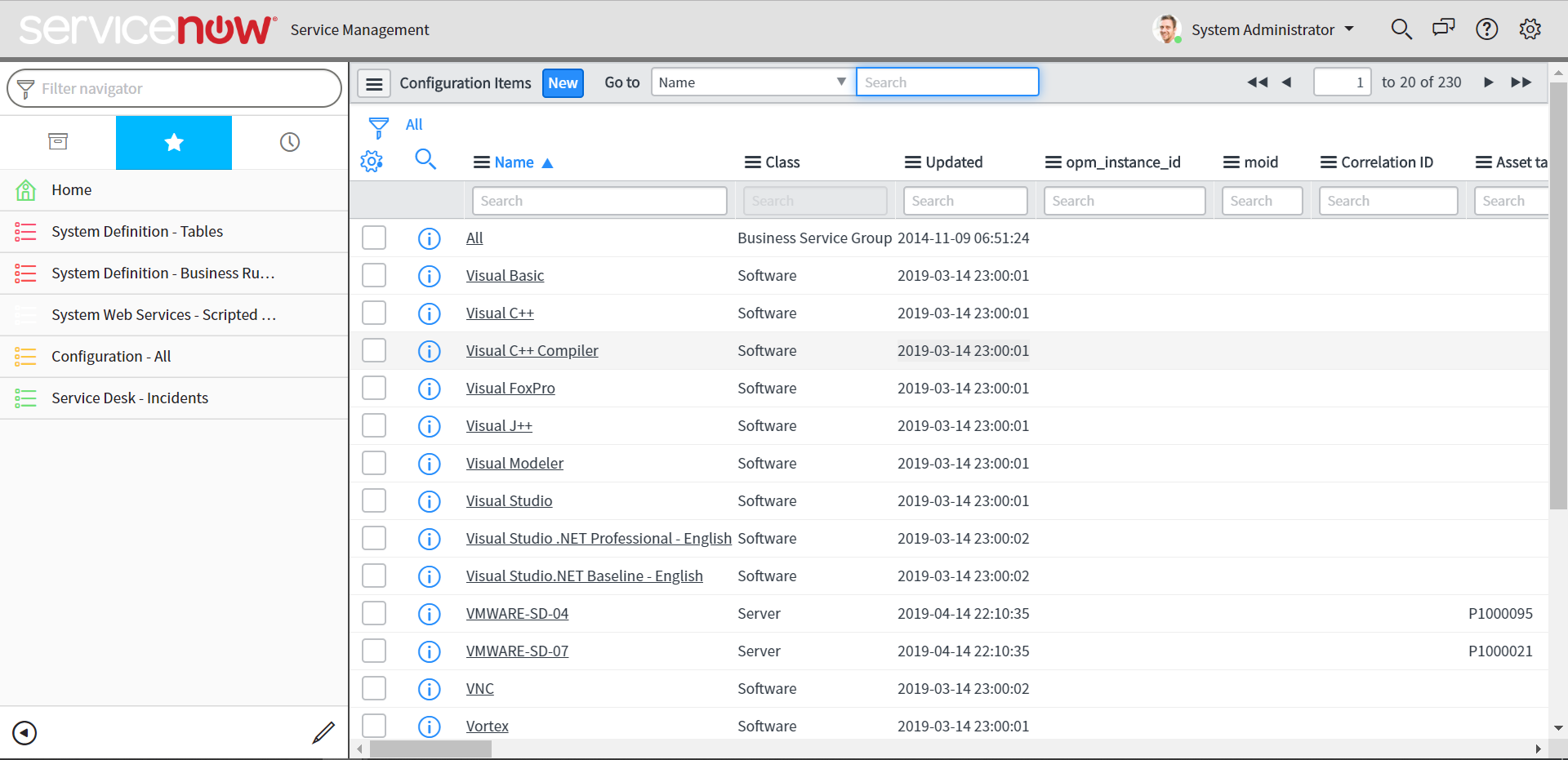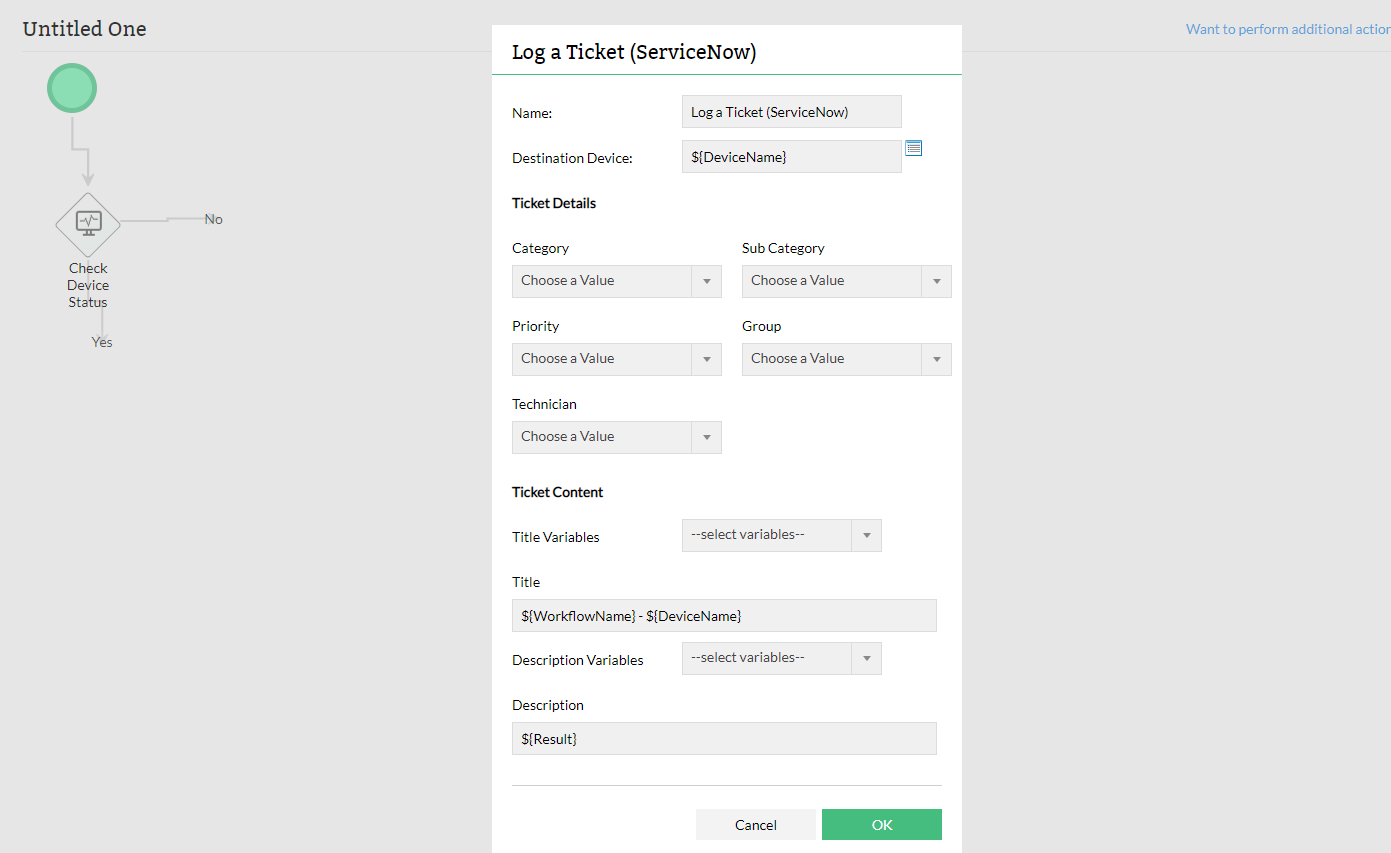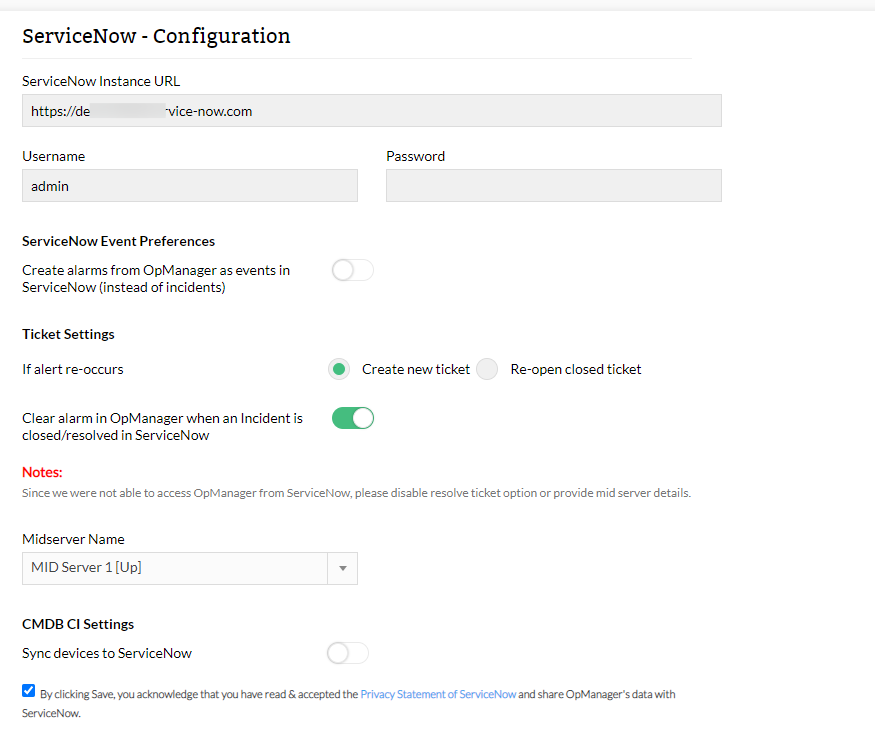Automated fault management
Integrating ServiceNow with OpManager allows you to create incidents (tickets) for any alarm raised based on pre-defined thresholds. When a fault is detected in your network, an event occurs and multiple events correlate to trigger an alarm. OpManager can be configured to notify the network administrator or perform automatic actions based on the alarm raised for a device using the notification profile. The raised ticket can be assigned to the appropriate team or technician automatically based on priority. This reduces the time spent on gathering outage details and manually assigning them. The entire process of categorizing and assigning tickets based on priority and pre-defined error condition helps you streamline alert management.
Click here to know about the incidents and events that will be synced while integrating OpManager with ServiceNow. Click here to know about the CIs that will be synced while integrating OpManager with ServiceNow.
Tackle and troubleshoot network outages
ServiceNow can be configured to reopen the same ticket when the alert reoccurs. This prevents unnecessary incident creation and helps you identify the issue and resolution of performance problems along with the incident status and details of the technician who handled the ticket. You can automatically create, update and close tickets in ServiceNow which will be reflected in OpManager. Alert acknowledgment in OpManager automatically updates the incident in the ServiceNow portal.
Event Management
IT event management is a critical field that helps organizations monitor and maintain the health of their IT infrastructure to eliminate business disruption. An IT network is associated with a lot of events. Some are trivial, some are not. However, it is impossible for the network admins to sort through mountains of events and this is where event management comes in. Using event management, users can keep a constant eye on the events by receiving alerts in case of a mishap. By integrating OpManager with ServiceNow, users can sync the alerts from OpManager as events to ServiceNow. This helps them bring down the MTTR and ease the process of fault remediation.
Simplified asset management
Integrating ServiceNow with OpManager simplifies asset management. You can identify which business service or unit gets affected the most for an incident. When a device is synced from OpManager to ServiceNow, it is added as an asset. When the particular device malfunctions or violates the specified threshold value configured in the associated notification profile, an incident will be raised in ServiceNow and the particular asset will also be mapped to the ticket. RAM and memory details of an asset will be synced and can be viewed with ServiceNow.
Pre-define actions using workflow
Using OpManager's workflow feature, not only can you automate monotonous tasks, but also pre-define actions when the set conditions are met. Suppose you need to restart your service once a specific incident has been resolved in ServiceNow. Instead of manually restarting the service everytime, you can create a workflow that triggers the restart service action once the corresponding ticket has been resolved in ServiceNow. This allows you to automate the laborious tasks and also automate the actions to be taken.
Symbiotic relationship
OpManager - ServiceNow integration can also be facilitated by two-way sync. Any changes in the incident status will be reflected on the other side as well. Suppose a device's CPU utilization value has crossed the threshold limit set by the user. The alarm will be carried over to ServiceNow as an incident for the concerned person to resolve it at the earliest. Once the incident is resolved, the corresponding alarm will also be cleared in OpManager. In the same way, any alarm cleared in OpManager will also resolve the corresponding ServiceNow incident. Hence, any action taken from one end will be carried over to the other end too, since they are synchronized. This helps in easier accountability and the potential to track issues from a single console while not missing out on the details. With OpManager ServiceNow's two-way sync:
- Any alarm generated in OpManager will automatically be logged as tickets in ServiceNow.
- Resolving incidents in ServiceNow will automatically close the corresponding alarms in OpManager.
- The incident details can be updated from the OpManager console.
By integrating OpManager with ServiceNow, you can proactively monitor your network, and rectify potential network bottlenecks. To know more about how to configure ServiceNow in OpManager, click here.


